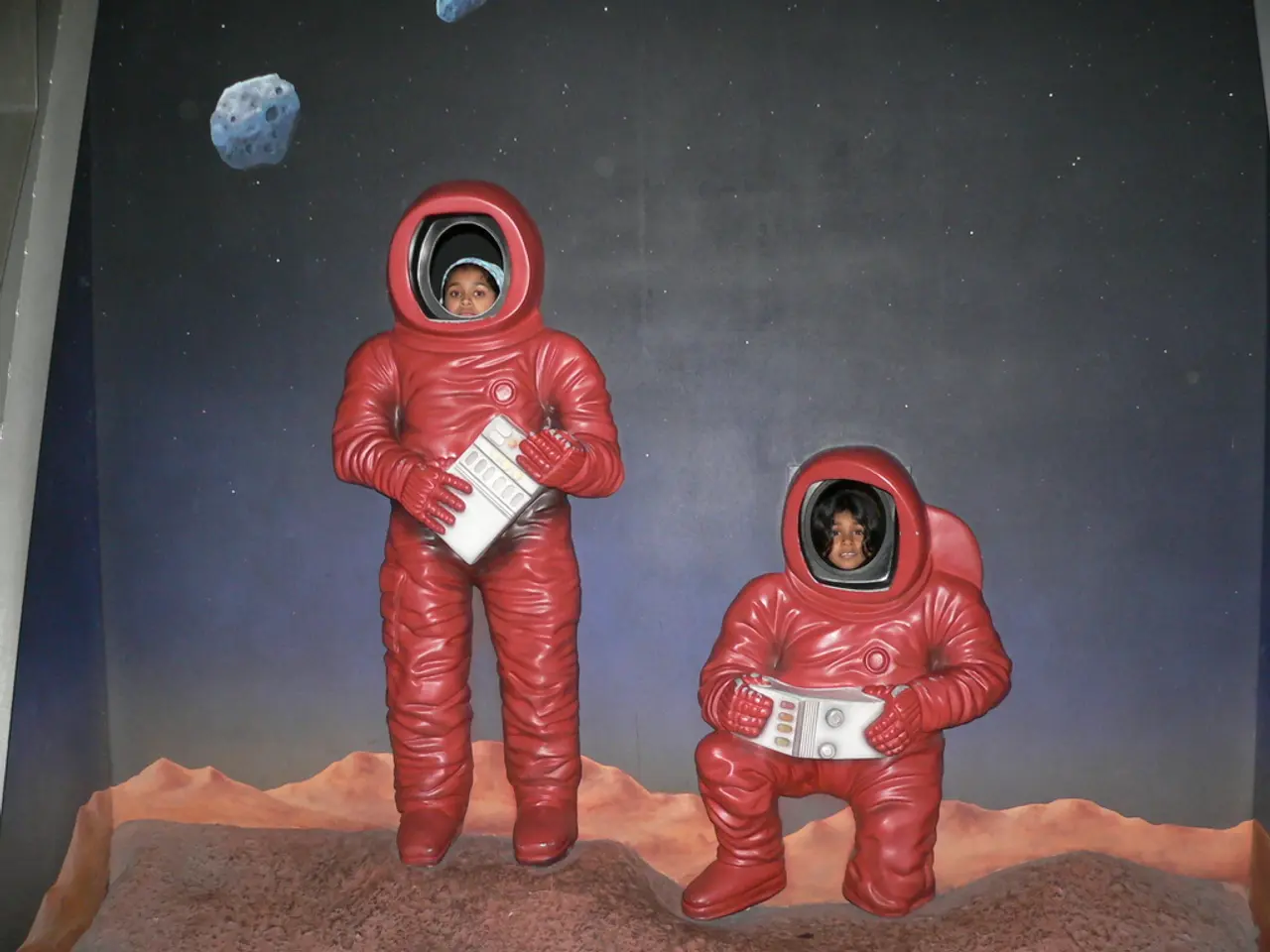British astronaut, who has a disability, given approval for space station journey
British Astronaut John McFall Breaks Barriers in Space Exploration
John McFall, a former Paralympic sprinter from Cardiff, has made history as the first British astronaut with a physical disability to be medically certified for a long-duration space mission at the International Space Station (ISS).
McFall's journey to this groundbreaking achievement has been marked by resilience and perseverance. At the age of 19, he lost his right leg in a motorcycle accident in Thailand. However, this life-altering event did not deter him from pursuing his dreams.
After his recovery, McFall became a Paralympic medalist, winning bronze in the 100-meter sprint at the 2008 Beijing Paralympics. He later represented Great Britain and served as the flag bearer at the 2024 Paris Paralympics opening ceremony.
Parallel to his athletic career, McFall studied sports and exercise sciences and then medicine, specializing in trauma and orthopedic surgery.
In 2021, when the European Space Agency (ESA) was seeking candidates with physical disabilities for astronaut roles, McFall applied and was selected as part of the astronaut reserve. He underwent rigorous assessments and over a year of intensive training designed to accommodate his prosthetic leg and physical condition.
An important technical milestone was the redesign of his prosthetic leg with space-age technology by Ottobock, enhancing his mobility and suitability for long-duration spaceflight.
After completing years of stringent evaluation and training, McFall was medically cleared to participate in a six-month mission to the ISS. This would mark the first time a person with a physical disability undertakes such a mission, subject to formal approval.
McFall's participation in the ESA's feasibility study has been significant in assessing the challenges of sending a disabled astronaut to the ISS. His dedication to pushing boundaries and redefining limitations has shattered preconceived notions about physical disabilities and space travel.
The ESA launched the Fly! feasibility study in 2022 to assess the challenges of sending a disabled astronaut to the ISS. The world eagerly anticipates the groundbreaking discoveries and advancements that will emerge from McFall's extraordinary voyage to the International Space Station.
Daniel Neuenschwander, the ESA's director of human and robotic exploration, commended McFall's achievement, stating that it underscores Europe's commitment to inclusivity in space exploration. This certification signifies a monumental achievement in space exploration, breaking barriers and inspiring a new generation of space enthusiasts to embrace inclusivity and diversity in the quest for understanding the cosmos.
McFall's journey serves as a testament to the human spirit's capacity for resilience and adaptation, paving the way for individuals with physical disabilities to dream beyond conventional boundaries. He encourages others with physical disabilities to pursue their dreams, showcasing that space travel is not an impossible feat.
References: [1] European Space Agency. (2022). ESA selects first disabled astronaut candidate. Retrieved from https://www.esa.int/news/esa-selects-first-disabled-astronaut-candidate
[2] BBC News. (2022). Disabled astronaut candidate John McFall talks about his journey. Retrieved from https://www.bbc.co.uk/news/uk-wales-56104391
[3] The Guardian. (2022). John McFall: the disabled astronaut who defied the odds. Retrieved from https://www.theguardian.com/science/2022/oct/14/john-mcfall-the-disabled-astronaut-who-defied-the-odds
- The news of John McFall's selection as the first disabled astronaut, following rigorous training and assessments, has ignited debate in topics related to space-and-astronomy, health-and-wellness (specifically mental-health), and inclusivity.
- Amidst the ongoing environmental crisis, John McFall's groundbreaking mission to the International Space Station offers an opportunity to explore the effects of space travel on both physical health and mental well-being, thereby contributing to the field of science.
- As John McFall's journey into space demonstrates, overcoming adversity, whether it's a physical disability or societal barriers, is integral to the spirit of travel and exploration. His story serves as an inspiration for those in the environment of health-and-wellness and mental-health advocate communities, as well as to future pioneers in the realm of space-and-astronomy.




